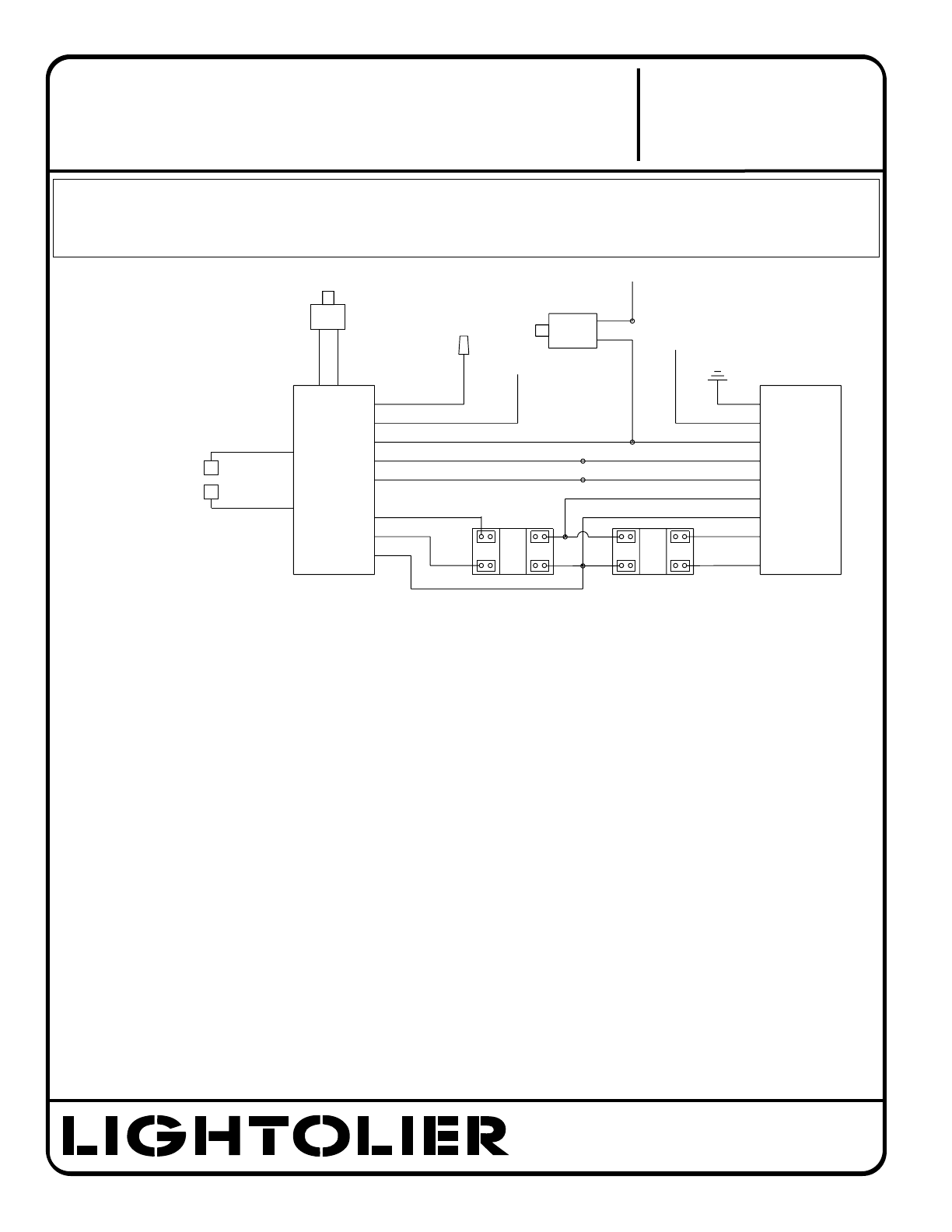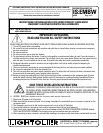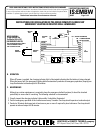
READ AND UNDERSTAND THESE INSTRUCTIONS BEFORE INSTALLING LUMINAIRE
This luminaire is intended for installation in accordance with the National Electrical Code and local regulations.
To assure full compliance with local codes and regulations, check with your local electrical inspector before
installation. To prevent electrical shock, turn off electricity at fuse box before proceeding.
Retain these instructions for maintenance reference.
INSTRUCTION SHEET NO.
IS:EMBW
A0402 Page 2 of 2
INSTRUCTIONS FOR INSTALLATION OF PRE-WIRED COMPACT FLUORESCENT
EMERGENCY LIGHTING DECORATIVE WALL LUMINAIRES
LIGHTOLIER a GENLYTE THOMAS company.
631 Airport Road, Fall River, MA 02720
TO LUMINAIRE GROUNDS
AND SUPPLY GROUND
WIRING DIAGRAM A
(2-Lamp 18W Quad Tube
Pre-Wired for 120V or 277V)
NOTE: FOR UNSWITCHED CIRCUIT, CONNECT
120V OR 277V EMERGENCY PACK HOT
LEAD TO AC BALLAST HOT LEAD.
RED
RED
YEL B
YEL A
BLUE
BLUE
WHITE
BLACK
GREEN
RED
RED
YEL/BLK
YELLOW
BLUE
BLUE/WHITE
(COM) WHITE
120V (BLK) OR 277V (ORG)
120V (BLK) OR
277V (ORG)
GRD
HOT
COM
HOT
(SWITCHED OR UNSWITCHED)
(UNSWITCHED)
CAP UNUSED
LEAD
RED
SKT
TEST
SWITCH
BLK
BLK
EMERGENCY
BALLAST
AC
BALLAST
WHITE
INDICATOR
LIGHT
BROWN -
VIOLET +
RED
WHITE
INVERTER
CONNECTOR
SKT
(ONE EMERGENCY LAMP ON)
B. OPERATION
When AC power is applied, the charging indicator light is illuminated indicating that the battery is being charged.
When the power fails, the emergency lighting ballast automatically switches to emergency operation, keeping one
lamp illuminated at reduced output for 90 minutes.
C. MAINTENANCE
Although no routine maintenance is required to keep the emergency ballast functional, it should be checked
periodically to ensure that it is working. The following schedule is recommended:
1. Visually inspect the charging indicator light monthly. It should be illuminated.
2. Test the emergency operation of the luminaire once every 3 months. One lamp should operate at reduced output.
3. Conduct a 90 minute discharge test at least once a year or more if required by local ordinance. One lamp should
operate at reduced output for 90 minutes.




